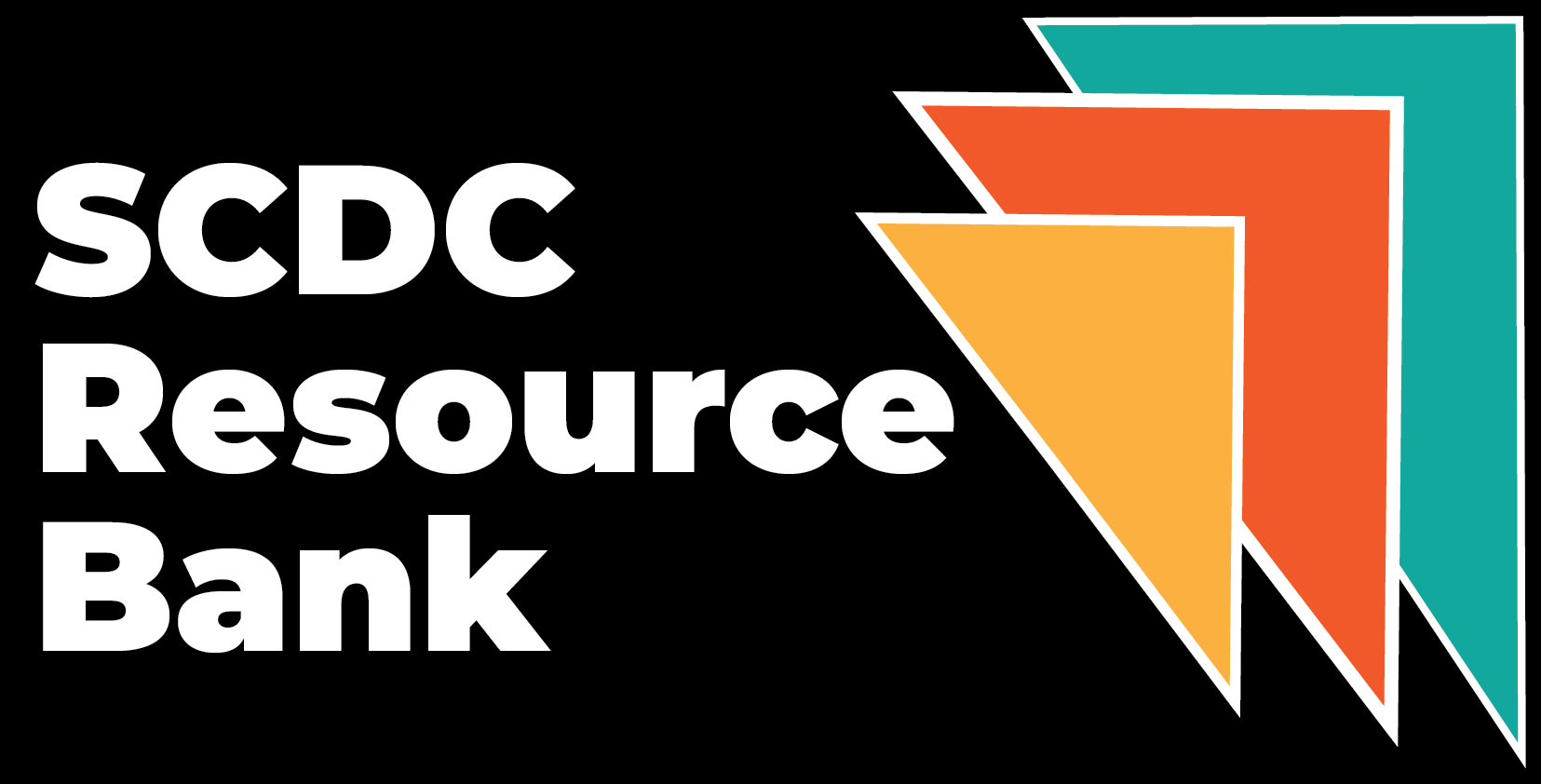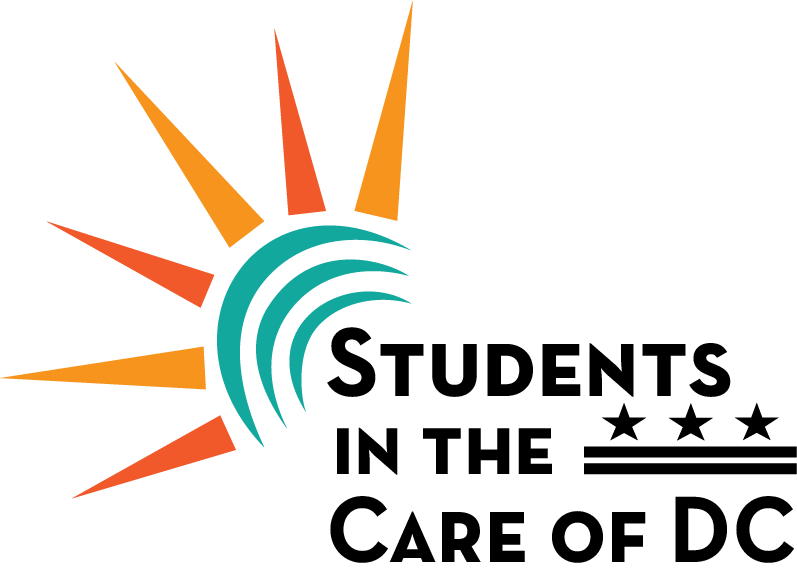 The SCDC Resource Bank is designed to be a living hub of research, best practices, guides and other materials that are thoughtfully collected to identify and reflect the challenges, barriers, needs, and supports for students who are system involved, their parents and families, educators, and other stakeholders who work directly with young people impacted by the child welfare and/or the juvenile/adult justice systems.
The SCDC Resource Bank is designed to be a living hub of research, best practices, guides and other materials that are thoughtfully collected to identify and reflect the challenges, barriers, needs, and supports for students who are system involved, their parents and families, educators, and other stakeholders who work directly with young people impacted by the child welfare and/or the juvenile/adult justice systems.
Featured Resources
General Resources
Educational Supports
Transitional Supports
Mental Health Supports
Featured Resources:
Blueprint for Change: Education Success for Youth in the Juvenile Justice System
By: The Legal Center for Youth Justice and Education (LCYJE)
"The Blueprint for Change is designed to be a tool for all stakeholders (including youth, parents, educators, lawyers, judges, caseworkers, probation officers, child welfare workers for dual status youth, juvenile justice and education system administrators, stake and local agencies and policy-makers). Stakeholders can use the framework of this Blueprint for Change to identify what they can do to promote educational success for youth in the juvenile justice system in their jurisdiction." There are 10 different goal areas and an extensive list of general resources here.
D.C's Juvenile Justice System
By: Department of Youth Rehabilitation Services (DYRS)
This webpage outlines the typical process for youth who become justice involved in the District of Columbia including arrest and processing, the pre-adjudication state, adjudication and disposition, the DYRS placement process, and the reentry process .
Operation: Education
By: Juveniles for Justice Project of Juvenile Law Center
This resource was created by youth and young adults in the Youth Fostering Change and Juveniles for Justice advocacy programs. The document features personal accounts regarding educational disruptions students with system involvement face and recommendations for schools, communities, transition teams, local education policies, and investments. Education Recommendations for students in the foster care system begin on page 19 and Education Recommendations for students in the juvenile justice system begin on page 23.
General Resources:
Emerging Adult Justice Project (EAJP)
By: Columbia University Justice Lab
The Emerging Adult Justice Project has curated a virtual speaker series that has looked at specialized parole and resentencing laws for emerging adults and through their self-guided “Echoes of Incarceration X EAJP Video Series.”
One specific source is the Specialized Parole and Resentencing Laws Focused on Emerging Adults which highlight's D.C's Incarceration Reducation Amendment Act of 2016 (IRAA). This act provides individuals incarcerated for offenses committed under the age of 18 an opportunity to petition the court for early release.” Page 7 of the report provides more details about the act.
Youth Law Center Resource Library
By: Youth Law Center
"The Youth Law Center is committed to sharing advocacy resources, information, and tools that can improve the quality of life and opportunities for youth in foster care and the juvenile justice system."
I Got Arrested! Now What?: A Guide to the Juvenile Justice System
By: Making Policy Public | 2010
Although specifically made for the New York State juvenile justice system, this five-page comic book provides illustrations, definitions and a clear linear path of what a young person who comes into contact with the juvenile justice system may expect.
More information here: "This comic book and fold-out poster follows one youth's journey through the New York State juvenile justice system. It describes what happens at the police station, the next morning in detention, meeting the lawyer, initial court appearance, fact finding hearing, and disposition hearing. Interspersed throughout are words/terms that the youth and family may hear during their experience, as well as some important tips."
Directory of Youth and Family Services
The Public Defender Service for the District of Columbia | 2016
A valuable tool as it relates to resources and support for young people in the care of the District and Prince George's County. The directory outlines specific educational support and contacts including DCPS, DC Public Charter Schools, GED services, and adult basic education starting on page 119. Resources related to special education start on page 132.
Teens and Young Adults Out-of-School-Time Programming
By: Learn24
Use the “find programs here” link to access the Learn24 program finder where you can filter through various out-of-school-time programming across the District, for different age and grade levels, and with different focal areas.
Educational Supports:
You Got This! Educational Pathways for Youth Transitioning from Juvenile Justice Facilities
By: U.S. Department of Education | 2016
This 12-page document provides a checklist for young people transitioning back into the community, resources, and common questions as it relates to one's civil rights. It explains the difference between one's school options (high school diploma vs. high school equivalency certificate vs. alternative schools), re-enrollment checklist, and other organizations and resources that may be helpful.
Students & Families
By: Office of the State Superintendent of Education (OSSE)
OSSE is the state education agency for the District of Columbia. Among other roles, OSSE supports and oversees DC Public Schools and public charter organizations, administers District-wide assessments, transports students with disabilities to and from school, and provides leadership and coordination to ensure our earliest learners have access to a great early childhood education.” Use this page to explore a variety of different topics.
DCPS Career and Technical Education
By: District of Columbia Public Schools (DCPS) in cooperation with DC CAN and NAF
DCPS’ Career and Technical Education Office offers high-quality CTE programming. The high schools offering CTE programming can be seen here and a list of programming with descriptions can be found here.
DCPS Career Ready Internship Initiative
By: District of Columbia Public Schools (DCPS) in cooperation with DC CAN
"The DC Public Schools (DCPS) Career Ready Internship initiative is managed by the DCPS College and Career Programs Division. The Career Ready Internship initiative allows highly qualified Summer Youth Employment Program (SYEP) applicants to interview for paid internships with leading industry employers in their career field of choice. These internships are designed to expose students to the world of competitive employment and help guide students through the career exploration process.”
Students, host employers, and teachers can browse the site to find relevant opportunities and resources.
DCPS College Prep Programs
By: District of Columbia Public Schools (DCPS)
Use this page to navigate information about the college application process and financial aid information. See also this DCPS College Prep Checklist.
Transitional Supports:
The D.C. Reentry Navigator: Empowering You to Succeed with a D.C. Criminal Record
The Public Defender Service for the District of Columbia | January 2021
PDS recently released this 900-page, 16-chapter book that provides a comprehensive compilation of expert knowledge and reentry resources for those impacted by the justice system in the District of Columbia. One can use the table of contents (starting on page xvii) to navigate through the various chapters. Everything one can imagine, from being released from BOP and DOC facilities; important tools for reentry and collecting one's identity documents; transportation questions; public benefits, healthcare, and housing resources; and specifics on education and employment are included.
Chapter 13 is focused on employment (page 555) and includes preparation assistance, access to employers who have employed individuals with records, and sample resumes. Chapter 14 is focused on education (page 643) and outlines one's educational rights and different types of programming. PDS has done a terrific job providing organizations' contact information, and enrollment and eligibility requirements in each of the sections.
Juvenile Justice Information Exchange Reentry Resources
By: Juvenile Justice Information Exchange (JJIE)
Questions and resources related to the importance of reentry supports, challenges a young person faces reentering the community, and information on reform trends are provided throughout this list.
Failed Policies, Forfeited Futures: A Nationwide Scorecard on Juvenile Records
By: Juvenile Law Center | July 2020
One of the issues of focus for the JLC are juvenile records, which they cite as "unfair, unjust, and unending." They have coordinated efforts to provide a national scorecard on each state's policies on keeping juvenile records both confidential and the mechanisms for expungement. A summary of their work is shared here and the District of Columbia's specific results can be found here.
Mental Health Supports:
Mental Health America: Self-Help Tools
By: Mental Health America
A plethora of resources, tips and tools to making one's mental health a top priority can be found on this site. Including an interactive "where to get help" tool.
For Young People Looking for Help
By: Mental Health.Gov
Brief webpage on signs of “mental health problems” and additional links and phone numbers to other providers.
Understood Resources
Understood’s mission is to connect students with learning and thinking differences to resources, expertise and communities that assist in bolstering confidence. Read more about their mission here. Resources for families, students and educators are provided in various forms (articles, tips, and videos).
Supporting Mental Health in Schools
By: Office of the State Superintendent of Education (OSSE)
Use this link to find written guidance for LEAs in developing procedures for students’ mental health and a directory of local programs and service providers.

